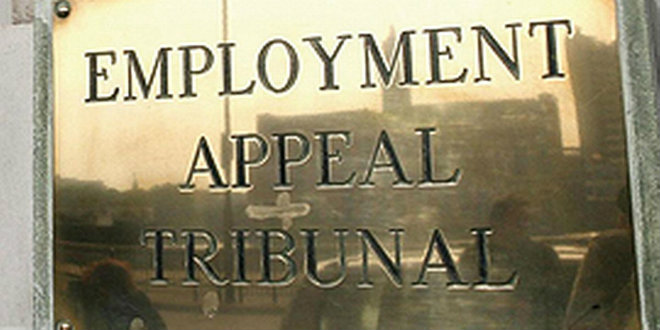Employee who was dismissed while on sick leave (for allegedly failing to discharge his duties as head chef and because of his unacceptable behaviour over a number of months) is awarded a sum close to €18,000 by the Employment Appeals Tribunal under the Unfair Dismissals Acts, 1977 and 2007, the Minimum Notice and Terms of Employment Acts, 1997 to 2005 and the Organization of Working Time Act, 1997.
According to the Employer the Employee in question allegedly displayed aggressive behaviour and appeared for work under the influence of drink. Reports of bullying of colleagues and name calling were filed with the Employer along with incidents of racism and other insults (for instance, calling a kitchen porter “stupid”, “slow” and “a druggie”). The Employee was also accused of throwing a knife at another member of staff – Matters the Employee refutes.
The Employee’s performance was called into question on a number of occasions prior to his dismissal – his failure to have adequate staffing and stock were criticized. A lack of communication and flexibility, in particular in relation to changing his time-off (for example, refusing to come to work on Good Friday when the Munster rugby team was playing) was outlined in an “Official Written Warning” on the 6th of April (the second letter of its kind).
On the 7th of April a dispute arose as to whether the Employee in question arrived for work “drunk”. He was instructed to get a blood test by his Employer. The Employee left the premises and sent a text message explaining that he would be on sick leave for the remainder of the week. Over the next few weeks the Employee sent numerous medical certificates indicating that he was suffering from an ulcer (the Employer was aware of this ulcer from early on in the employment).
On receipt of the “Official Written Warning” dated 6th April (mentioned above) the Employee’s trade union sought a meeting with the Employer as the trade union maintained that the warnings had been issued “unfairly without any consultation or trade union representation”. This meeting was held on the 20th of April in the hopes that issues between the Employer and Employee (who had previously been friends) could be resolved, however, the Employee’s unresponsiveness dissatisfied the Employer and he undertook to consult with his legal team. The Employee believed that the Employer wanted to replace him as he had advertised for a head chef the previous day (April 19th).
On the 26th of April the Employee enquired as to when he should return to work and the Employer replied telling the Employee to start back the following week (May 3rd) but when the expected return date arrived the Employee again produced a medical certificate. Two days later the Employer instructed the Employee to post medical certificates and not to attend the premises, except to return keys, until the Employer had heard from his legal team.
When the Employee furnished medical certificates to cover him for the entire month the Employer wrote to the Employee dismissing him for failure to heed the warnings regarding his behaviour and for arriving to work under the influence of drink as well as throwing a knife at another staff member.
The Employee believed the disciplinary action was taken against him as a result of a complaint that he had made to the National Employment Rights Authority (NERA) a few months prior to the dismissal.
The Employee was dismissed while on sick leave and the Employment Appeals Tribunal found that, based on the medical certificates and an endoscopist’s letter, the Employee had genuine reason for his absence. The Tribunal found that the procedures used by the Employer in dismissing the Employee were “flawed” and “deficient” because neither of the “official warnings” issued to the Employee put him on notice that his job was in jeopardy.
The Tribunal found that the Employer had not investigated the knife allegation in a “fair” manner. The Employee was dismissed without the benefit of a disciplinary hearing and without being afforded the opportunity to respond to the allegations made against him. In addition the Tribunal found that the Employee was not afforded an adequate opportunity to improve between his warning letter and his dismissal (as he was on sick leave during that period).
The Employee was awarded €14,500 under the Unfair Dismissals Acts, 1977 to 2007, €1,538 (being the equivalent to two weeks’ pay) under the Minimum Notice and Terms of Employment Acts, 1973 to 2005 and €1,691.80 (being the equivalent of 11 days annual leave) under the Organisation of Working Time Act, 1997.
In total the sum awarded to the Employee by the Tribunal was €17,729.80.
You might ask how this Employee received such a substantial award given his alleged appalling performance in the workplace…… The Employer failed to follow the correct process when disciplining, and then dismissing, the Employee and therefore left himself open to a claim under the Acts.
This was a very costly mistake on the part of the Employer and one that could easily finish a small business.
This example, along with thousands more, reiterates the significance of complying with Irish Employment Legislation and observing appropriate disciplinary procedures in order to insulate your company from the risk of a claim.
Published on Employment Appeals Tribunal Website – 29th May 2013 – Sealed with the Seal of the Employment Appeals Tribunal.
Source:






Leave A Comment